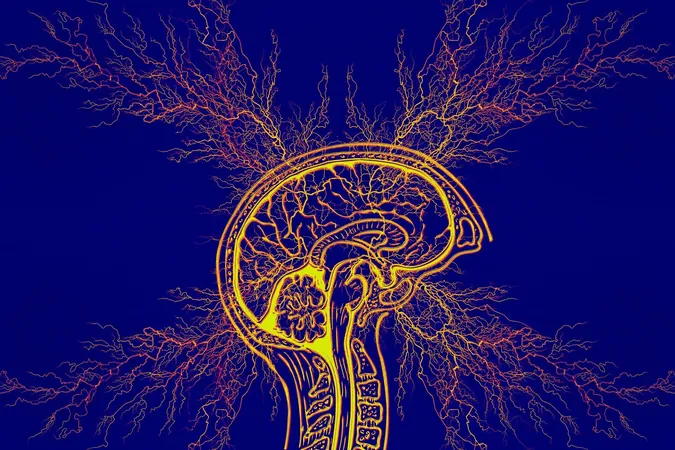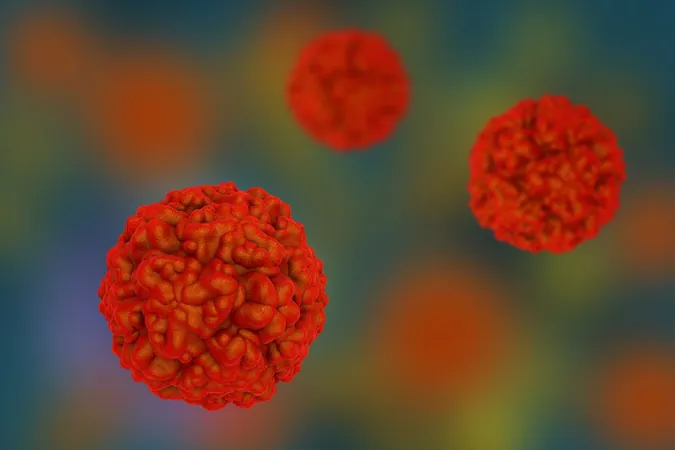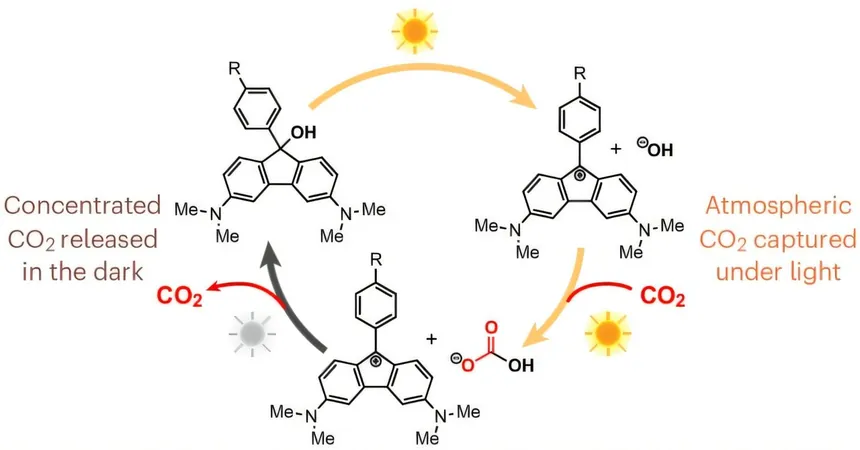
Shocking Study Reveals Most Epilepsy Patients Wait Over a Year for Seizure Relief!
2025-08-25
Author: Ming
A Glimpse into the Struggles of Focal Epilepsy Patients
Antiseizure medications can be lifesavers for many individuals suffering from focal epilepsy, yet a startling new study reveals that a majority of these patients endure at least a year of relentless seizures before finding effective treatment solutions.
Why the Delay? Understanding Focal Epilepsy
Focal epilepsy represents around 60% of all epilepsy cases, characterized by abnormal bursts of electrical activity in specific brain regions. This can trigger focal seizures, manifesting as unusual emotions, sensations, or behaviors. While significant focus has been directed toward the small percentage of patients resistant to current treatments, this study shines a light on those struggling to find the right medication.
Groundbreaking Research from NYU Langone Health
Conducted by the esteemed NYU Langone Health as part of the Human Epilepsy Project, this research is one of the first in a decade to investigate why some patients don’t respond quickly to their initial medication. It surveyed nearly 450 newly diagnosed individuals, unveiling an uncomfortable truth: effective treatments may take an average of 12 months or longer to materialize.
The Treatment Journey: A Long and Winding Road
Jacqueline French, MD, senior author of the study, highlights the frustrating reality for patients: "Those with focal epilepsy should brace for a lengthy adjustment period as their healthcare providers navigate the best treatment strategies." This necessity arises largely due to physicians often choosing a one-size-fits-all approach.
Reevaluating Prescriptions: The Case of Levetiracetam
Levetiracetam, a common first-line drug, is often the go-to choice for neurologists. Surprisingly, only about 25% of patients on this medication experienced freedom from seizures on their initial attempt. French suggests it might be time for specialists to reconsider this typical starting point.
A Global Effort: Insights from 34 Epilepsy Centers
The study, conducted from 2012 to 2019, drew data from 34 epilepsy centers across the U.S., Europe, and Australia. Researchers meticulously tracked patients' medical histories, demographics, and seizure details through electronic diaries, revealing deep insights into the fluctuating nature of the disorder.
Unveiling the Reality: Patients Still Struggle
In a concerning finding, 63% of participants continued to experience ongoing or even worsening seizures during the first year of treatment. Patients with less frequent seizures prior to starting treatment were more likely to respond positively compared to those who had them weekly.
Psychological Factors at Play
An intriguing aspect of the study revealed that participants with a history of anxiety or depression were nearly twice as likely to struggle with their medication compared to those without such issues.
Looking Ahead: What's Next for Epilepsy Research?
French emphasizes the need to utilize existing treatments more effectively, rather than always searching for the next miracle drug. The research team aims to further explore the experiences of those who did not achieve seizure freedom during the study.
A Cautionary Note
It’s crucial to note that this study didn’t evaluate the direct effect of medication choices, doses, or side effects on patient outcomes and included participants who may not have consistently followed their treatment plans. The journey for epilepsy patients is complex, and ongoing research remains essential.




 Brasil (PT)
Brasil (PT)
 Canada (EN)
Canada (EN)
 Chile (ES)
Chile (ES)
 Česko (CS)
Česko (CS)
 대한민국 (KO)
대한민국 (KO)
 España (ES)
España (ES)
 France (FR)
France (FR)
 Hong Kong (EN)
Hong Kong (EN)
 Italia (IT)
Italia (IT)
 日本 (JA)
日本 (JA)
 Magyarország (HU)
Magyarország (HU)
 Norge (NO)
Norge (NO)
 Polska (PL)
Polska (PL)
 Schweiz (DE)
Schweiz (DE)
 Singapore (EN)
Singapore (EN)
 Sverige (SV)
Sverige (SV)
 Suomi (FI)
Suomi (FI)
 Türkiye (TR)
Türkiye (TR)
 الإمارات العربية المتحدة (AR)
الإمارات العربية المتحدة (AR)